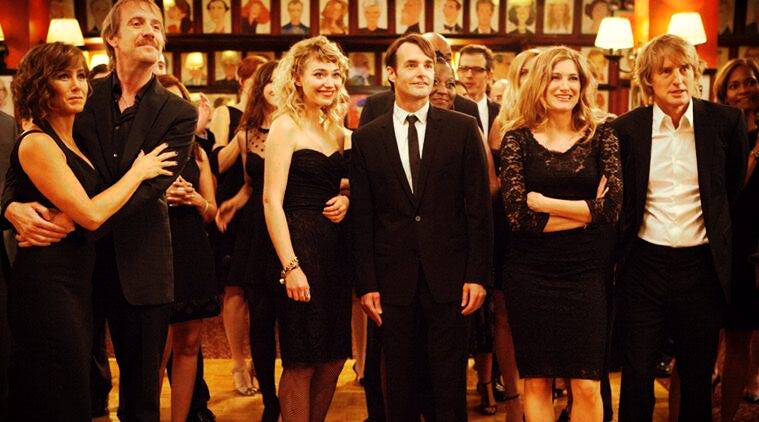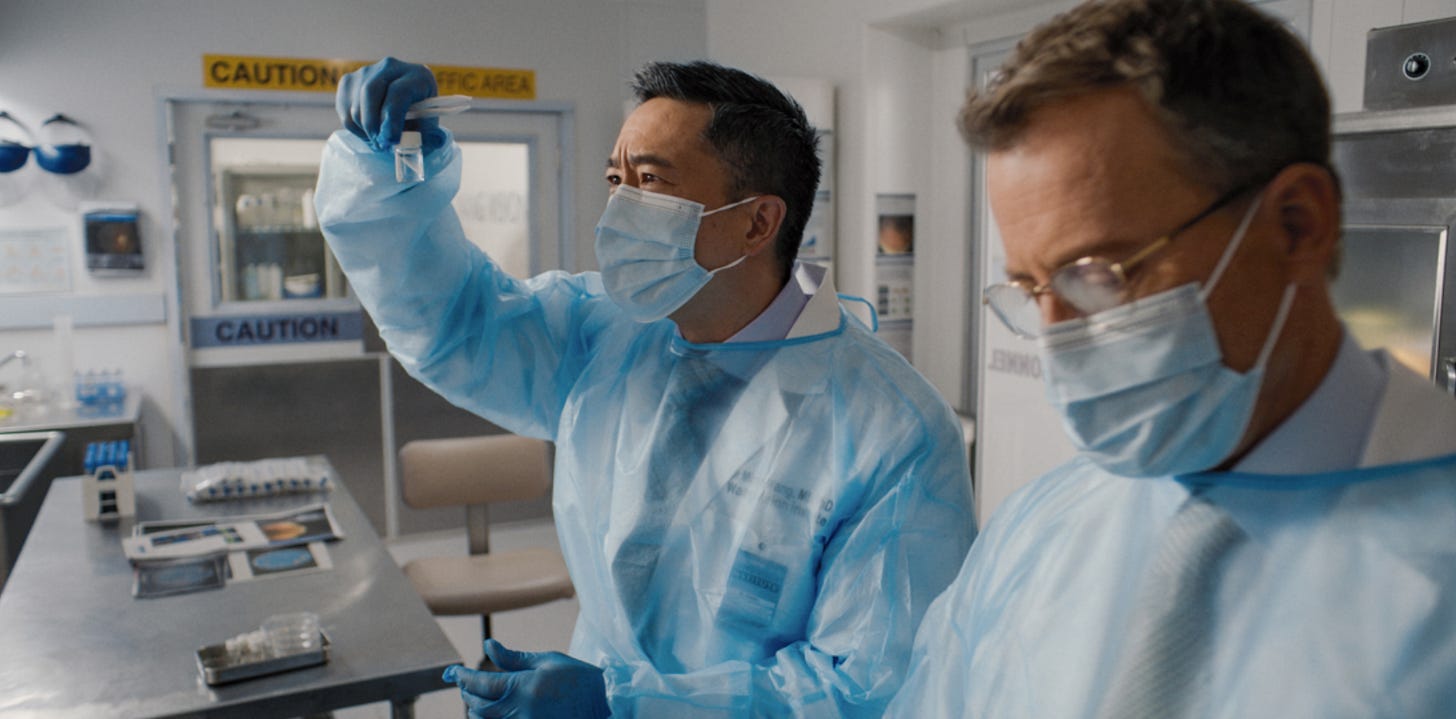Nuts to the Squirrels, Of Course
What it was like to attend the regional premiere of 'Squirrels to the Nuts,' plus thoughts on 'Sight' and 'MoviePass, MovieCrash.'
Dear Moviegoers,
We are well into June, and only now do I have some thoughts to articulate on the regional New Orleans area premiere of Peter Bogdanovich’s Squirrels to the Nuts. “Better late than never” might just be my motto, or maybe what is enshrined on the Arceneaux family crest - I’m not sure, but once I find out, I’ll provide an answer well past its relevancy.
This screening of Squirrels to the Nuts, as shown on May 29th at the East Bank Library in Metro New Orleans, was made possible through its discovery on eBay by film historian and instructor James Kenney. The film stands as the intended/Bogdanovich-approved version of She’s Funny That Way, the studio-mandated cut of his directorial vision.
I’ve been on a kick of Bogdanovich movies as of late, so this film and its serendipitous rescue from the trash bin is of special notice to me. I will likely write a more thorough piece on it, but for now, here are some bullet points on the screening that I attended:
As always, moviegoers shuffled into the auditorium towards the officially listed showtime, but on this occasion, they did so with a comforting and light conversation between them. They caught up with one another, talked cinema, and were generally excited while also polite. Very refreshing.
I was one of a few “young” moviegoers in the crowd, as the heavy bulk of the people attending were “young at heart.” Were they the market for screwball comedies? For Peter Bogdanovich films? Probably just for free screenings at their local library. This situation reminded me of an event for the silent film Beau Geste, which was screened at the Prytania Uptown many years back. There, I was THE youngest moviegoer seated. There’s either something magical about that or something somewhat sad. Where are the kids?
The man at the helm of the projector was none other than the great movie programmer and cinema enthusiast Josh Stover, whom I had interviewed for a podcast at least a decade ago. He did great, as the images were crisp and bright, and the sound was vibrant and clear.
This screening was free, likely due to legal voodoo that’s still being worked out. As James Kenney explained, we were attending the twelfth or thirteenth screening ever.
Did Squirrels to the Nuts live up to the hype? Yes. It was a wonderfully cute and expertly crafted comedy of errors and romance. More to come (down the line).
And now, our movie reviews:
Sight, from the interestingly popular production company of religious historical dramas Angel Studios, is standard blah biopic fare that’s drowned in a bathtub of missing pieces and frustratingly corny anecdotes. From a novice view, it appears through its trailer as a somewhat kindhearted if hamfisted bar of soap, but this facade is only hiding an unfortunately poor movie. Fortunately, however, there are moments of buzz. Genuinely, there are.
This is the story of a Chinese boy who, after growing up through political turmoil in his home country, moves to America and becomes a respected eye doctor. Told across decades, simultaneously showing his past childhood and his present adulthood, Dr. Ming Wang (Terry Chen) faces challenging cases of eye trauma and even more challenging burdens of trying to solve these problems for every child he sees. Angel Studios, having a “based on a true story” tale to tell, takes advantage of the word “sight” to relate a personal message about faith - specifically in what is left in the air a little, though there is a tightrope between God and self that is never fully explored. An end credits coda from the real Dr. Wang does reveal the answer, but if checked out of the movie before then, Sight could mean more than Christian melodrama.
I don’t mean to be cold towards this genre, but these films from these studios typically end up being psalms as read to a parish. Grating and annoying. Sight does succeed in being a bit better than that, as actor Terry Chen is rather compelling as Dr. Wang. It’s too bad that the script is all too truncated, as if scenes and expositions were dropped at the service of attention spans, providing mere gists. For example, the China portions of the movie could’ve been rich but are limited in scope and fake complexity. The film skirts history a bit, and only cares about trauma, inciting incidents, and overcoming obstacles. Noble? On the surface, sure. At the service of what though? Sight is a sacrifice to an audience that a studio thinks isn’t interested in details. How sad. Too sad. 1.5/5

As a cheerleader for the app’s concept from its original beta beginnings and as a present-day supporter of the new iteration, I always felt that the story of MoviePass was more about the disruption and innovation of the theatrical film exhibition model. If the Max Original documentary MoviePass, MovieCrash ends up being the final word on this tale of idealist entrepreneurship and capitalist greed, then let it be one of warning, of caution, and optimistic gumption.
There’s indeed something poetic about this startup story, at least in terms of comeuppance and justice. Not without obstacles, both racial and corporate (though the two elements are connected), the movie makes itself more about the black app founders Stacy Spikes and Hamet Watt than the white hucksters who brought everything down, and rightfully so. Now, one could make the argument that MoviePass, MovieCrash is too lopsided in their direction, but I say it’s not nearly lopsided enough. Spikes and Watt evoke such inspiration and honesty that anything less than what the documentary has for them would be a disservice. This is a reckoning by film, where the villains deserve a public square shaming and the heroes deserve applause. And amazingly, it’s all true.
Maybe the documentary has pacing problems, maybe it stretches some of the drama, and maybe being a step above a VH1 Remember the 2010s? style special is not a badge to wear proudly, but MoviePass, MovieCrash sets wrongs right. The pen is mightier than the sword, so to speak. I appreciate it when films like this go above and beyond to not just present things as they happened, but also provide the answer for how these things will be remembered. The final word or a general gist? Somewhere in between, I think. And that somewhere is a fine place to be. 3.5/5







